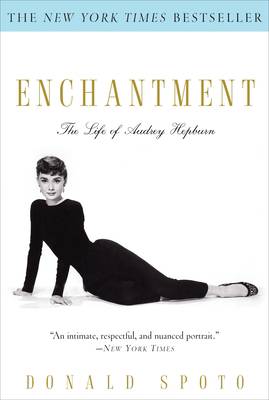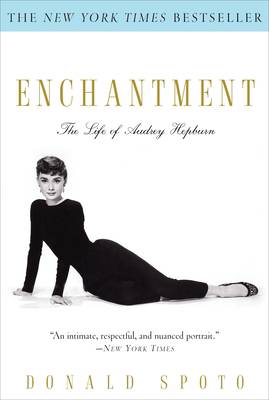
- Retrait gratuit dans votre magasin Club
- 7.000.000 titres dans notre catalogue
- Payer en toute sécurité
- Toujours un magasin près de chez vous
- Retrait gratuit dans votre magasin Club
- 7.000.000 titres dans notre catalogue
- Payer en toute sécurité
- Toujours un magasin près de chez vous
24,95 €
+ 49 points
Format
Description
While her name is synonymous with elegance, style and grace, this poignant, funny and deeply moving biography, reveals the private Audrey Hepburn and invites readers to fall in love with her all over again. Over the course of her extraordinary life and career, Audrey captured hearts around the world and created a public image that stands as one of the most recognizable and beloved in recent memory. But despite her international fame and her tireless efforts on behalf of UNICEF, Audrey was also known for her intense privacy. With unprecedented access to studio archives, friends and colleagues who knew and loved Audrey, bestselling author Donald Spoto provides an intimate and moving account of this beautiful, elusive and talented woman. Tracing her astonishing rise to stardom, from her harrowing childhood in Nazi-controlled Holland during World War II to her years as a struggling ballet dancer in London and her Tony Award-winning Broadway debut in Gigi, Spoto illuminates the origins of Audrey's tenacious spirit and fiercely passionate nature. She would go on to star in some of the most popular movies of the twentieth century, including Roman Holiday, Sabrina, Funny Face, The Nun's Story, Breakfast at Tiffany's and My Fair Lady. A friend and inspiration to renowned designer Hubert de Givenchy, Audrey also emerged as a fashion icon and her influence on women's fashion virtually unparalleled to this day. Behind the glamorous public persona, Audrey was a different and deeper person and a woman who craved love and affection. Donald Spoto offers remarkable insights into her professional and personal relationships with her two husbands, and with celebrities such as Gregory Peck, William Holden, Fred Astaire, Gary Cooper, Robert Anderson, Cary Grant, Peter O'Toole, Albert Finney and Ben Gazzara. The turbulent romances of her youth, her profound sympathy for the plight of hungry children, and the thrills and terrors of motherhood prepared Audrey for the final chapter in her life, as she devoted herself entirely to the charity efforts of an organization that had once come to her rescue at the end of the war: UNICEF.
Spécifications
Parties prenantes
- Auteur(s) :
- Editeur:
Contenu
- Nombre de pages :
- 384
- Langue:
- Anglais
Caractéristiques
- EAN:
- 9780307237590
- Date de parution :
- 09-10-07
- Format:
- Livre broché
- Format numérique:
- Trade paperback (VS)
- Dimensions :
- 155 mm x 231 mm
- Poids :
- 426 g







